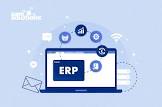Empowering Businesses with Cutting-Edge Technology Solutions
The Power of Technology Solutions
Technology has revolutionized the way we live and work, offering endless possibilities for innovation and efficiency. In today’s fast-paced world, businesses and individuals rely on technology solutions to streamline processes, enhance productivity, and stay ahead of the competition.
Benefits of Technology Solutions
Implementing technology solutions can have a profound impact on organizations of all sizes. Here are some key benefits:
- Increased Efficiency: Automation and digital tools can significantly improve workflow processes, saving time and resources.
- Enhanced Communication: Collaboration platforms and communication tools facilitate seamless interaction among team members, regardless of their location.
- Data Security: Robust cybersecurity measures protect sensitive information from cyber threats and unauthorized access.
- Scalability: Technology solutions can easily adapt to the changing needs of a business, allowing for growth and expansion without major disruptions.
- Better Decision-Making: Data analytics tools provide valuable insights that enable informed decision-making and strategic planning.
The Role of Technology Providers
Technology providers play a crucial role in helping organizations leverage the full potential of technology solutions. From IT consultancy to software development, these experts offer tailored services that align with the specific goals and requirements of their clients.
By partnering with a trusted technology provider, businesses can access cutting-edge solutions that drive innovation, improve operational efficiency, and deliver tangible results. Whether it’s implementing cloud services, developing custom software applications, or enhancing cybersecurity measures, technology providers empower organizations to thrive in the digital age.
The Future of Technology Solutions
As technology continues to evolve at a rapid pace, the possibilities for innovation are limitless. Emerging trends such as artificial intelligence, blockchain, Internet of Things (IoT), and edge computing are reshaping industries and opening up new opportunities for growth.
By embracing these advancements and investing in technology solutions that align with their strategic objectives, businesses can stay competitive in an ever-changing landscape. The future belongs to those who harness the power of technology to drive progress, foster creativity, and unlock new potentials.
6 Essential Tips for Enhancing Your Tech Security and Efficiency
- Regularly update your software and applications to ensure optimal performance and security.
- Back up your important data regularly to prevent loss in case of system failures or cyber attacks.
- Use strong, unique passwords for each of your accounts and consider using a password manager for added security.
- Be cautious when clicking on links or downloading attachments from unknown sources to avoid malware infections.
- Enable two-factor authentication whenever possible to add an extra layer of protection to your accounts.
- Educate yourself about the latest technology trends and best practices to make informed decisions about your tech solutions.
Regularly update your software and applications to ensure optimal performance and security.
Regularly updating your software and applications is essential to maintaining optimal performance and security for your digital systems. Software updates often include bug fixes, performance enhancements, and crucial security patches that help safeguard your data against cyber threats. By staying up-to-date with the latest versions of your software, you not only ensure smooth operation but also mitigate the risk of potential vulnerabilities that could compromise the integrity of your technology infrastructure. Prioritizing regular updates is a proactive measure that can significantly enhance the efficiency and resilience of your digital environment.
Back up your important data regularly to prevent loss in case of system failures or cyber attacks.
It is crucial to back up your important data regularly to safeguard against potential data loss due to system failures or cyber attacks. By implementing a robust backup strategy, you can ensure that your critical information remains secure and accessible, even in the face of unforeseen circumstances. Regular backups not only provide peace of mind but also serve as a proactive measure to mitigate the risks associated with data breaches or hardware malfunctions. Remember, prevention is key when it comes to protecting your valuable data assets.
Use strong, unique passwords for each of your accounts and consider using a password manager for added security.
When it comes to enhancing your cybersecurity posture, a crucial tip is to utilize strong, unique passwords for every account you own. By employing distinct passwords for each account, you significantly reduce the risk of unauthorized access in case one password is compromised. Additionally, considering the complexity of managing multiple passwords, using a reliable password manager can streamline this process and provide an extra layer of security by encrypting and storing your credentials securely. Embracing these practices not only fortifies your online defenses but also promotes a proactive approach to safeguarding your digital assets.
Be cautious when clicking on links or downloading attachments from unknown sources to avoid malware infections.
It is essential to exercise caution when interacting with unfamiliar sources online to prevent potential malware infections. Avoid clicking on links or downloading attachments from unknown sources, as these actions can introduce malicious software that compromises the security of your devices and personal information. Stay vigilant and prioritize cybersecurity best practices to safeguard against cyber threats and ensure a safe digital experience.
Enable two-factor authentication whenever possible to add an extra layer of protection to your accounts.
Enabling two-factor authentication whenever possible is a crucial step in enhancing the security of your accounts. By adding an extra layer of protection beyond just a password, two-factor authentication significantly reduces the risk of unauthorized access to your sensitive information. This additional security measure typically requires a verification code sent to your mobile device or email, ensuring that even if your password is compromised, malicious actors would still need another form of verification to gain access. Embracing two-factor authentication is a simple yet effective way to bolster the security of your online accounts and safeguard your digital assets.
Educate yourself about the latest technology trends and best practices to make informed decisions about your tech solutions.
Staying informed about the latest technology trends and best practices is essential for making well-informed decisions when it comes to implementing technology solutions. By educating yourself on the ever-evolving landscape of technology, you can stay ahead of the curve, identify opportunities for innovation, and ensure that your tech solutions align with your business goals. Continuous learning and staying updated empower you to make strategic choices that maximize the benefits of technology for your organization.




